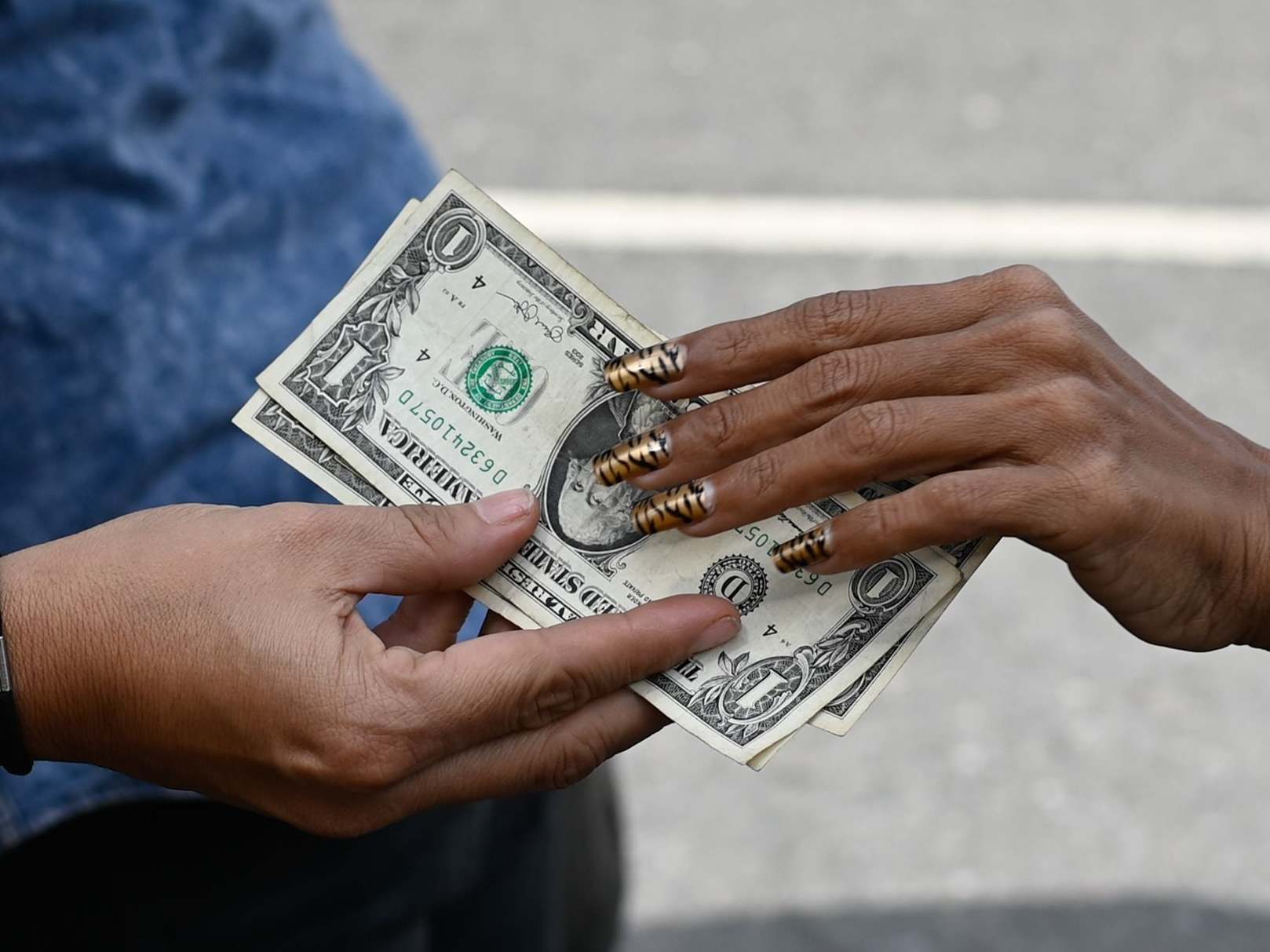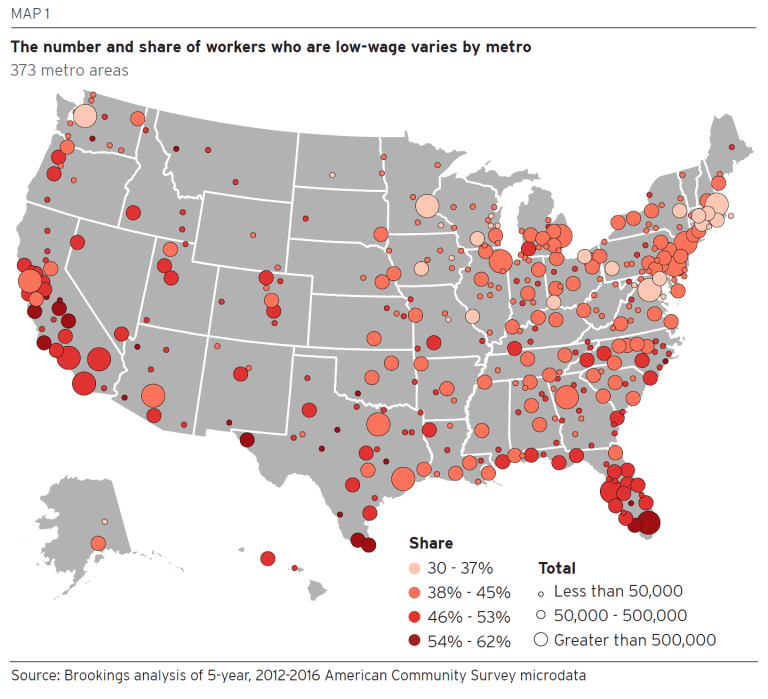Nearly half of Americans work in low-wage jobs, new study finds
Poorly paid workers are not just students and people looking for an extra buck

Your support helps us to tell the story
From reproductive rights to climate change to Big Tech, The Independent is on the ground when the story is developing. Whether it's investigating the financials of Elon Musk's pro-Trump PAC or producing our latest documentary, 'The A Word', which shines a light on the American women fighting for reproductive rights, we know how important it is to parse out the facts from the messaging.
At such a critical moment in US history, we need reporters on the ground. Your donation allows us to keep sending journalists to speak to both sides of the story.
The Independent is trusted by Americans across the entire political spectrum. And unlike many other quality news outlets, we choose not to lock Americans out of our reporting and analysis with paywalls. We believe quality journalism should be available to everyone, paid for by those who can afford it.
Your support makes all the difference.Nearly half of all American workers between the ages of 18 and 64 are making wages that leave them and their families extremely vulnerable, in spite of the booming US economy that has seen record growth in recent years.
That’s according to a new study, which finds that a whopping 53 million Americans in that age range qualify as “low-wage”, with a median income of $10.22 (£7.86) an hour, and median annual earnings of about $18,000 (£13,849).
The findings of the new study detail an ugly and worrying side of the strong American economy, with low-wage workers falling outside of the stereotype for the group — it’s not just students, people at the start of their careers, or folks looking for some extra spending money. The majority, according to the Brookings Institute study, are adults in prime working years who rely on low-wage work as a primary income.
"It is worrying. For people trying to support themselves and their families on a low-wage job, it's a grim picture," Martha Ross and Nicole Bateman, the authors of the study, told The Independent in an email.
"Think of a nursing assistant with two children, or someone laid off from a maintenance job who can only find lower-paying work, or a 50-year-old hospital housekeeper with no retirement savings," they continued. "About half of low-wage workers are either the primary earner or a substantial contributor to total family earnings—they are not in the labour market for 'nice to have' additional income. And while a low-wage job is a temporary way station for some, it is the final destination for others."

According to the study, low-wage jobs make up between one-third and two-thirds of all jobs in nearly 400 metropolitan areas across the US, with smaller cities in the South and West having the highest share.
"Two-thirds of low-wage workers (33 million people) are in their prime working years of 25-54, and a big share of this group (40 per cent, 13 million people) are raising children. Other research shows that that the longer you stay in a low-wage job, and the odler you are in a low-wage job, the less likely you are to move up," the authors said.
In Las Cruces New Mexico, and Jacksonville, North Carolina, the study found 60 per cent of workers are low-wage.
“Places with some of the highest wages and most productive economies are home to large numbers of low-wage workers: nearly one million in the Washington, DC, region, 700,000 each in Boston and San Francisco, and 560,000 in Seattle,” wrote Ms Ross and Ms Bateman, in the study.
The study provides a variety of fixes for the problem, including advocating greater employer involvement, and allocating funds towards “evidence-based” programmes. They also note that no small part of any effort to ameliorate the situation will require tremendous political will.
The release of the study comes just as the 2020 Democratic primary season is set to officially start, with several leading candidates already focusing on the plight of low wage workers across the country.
Among those candidates are, notably, Vermont senator Bernie Sanders and Massachusetts senator Elizabeth Warren, both of whom have advocated in favour of a federal $15 (£11.54) minimum wage.
Both candidates represent a swing to the left in the Democratic party, too, and have targeted the massive stores of wealth in the US, at the apparent expense of ordinary workers
Join our commenting forum
Join thought-provoking conversations, follow other Independent readers and see their replies
Comments